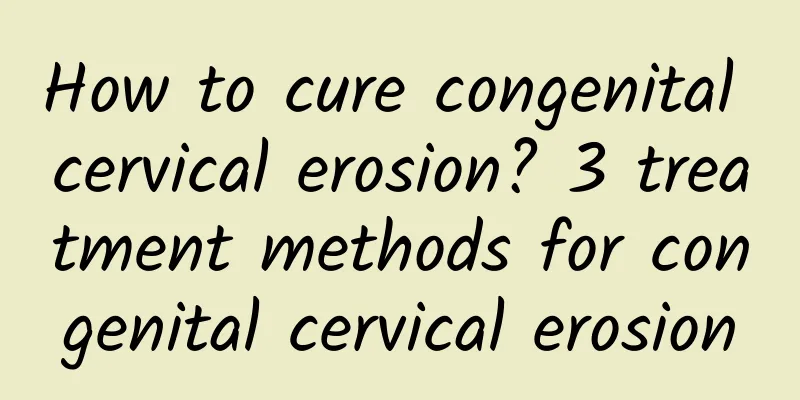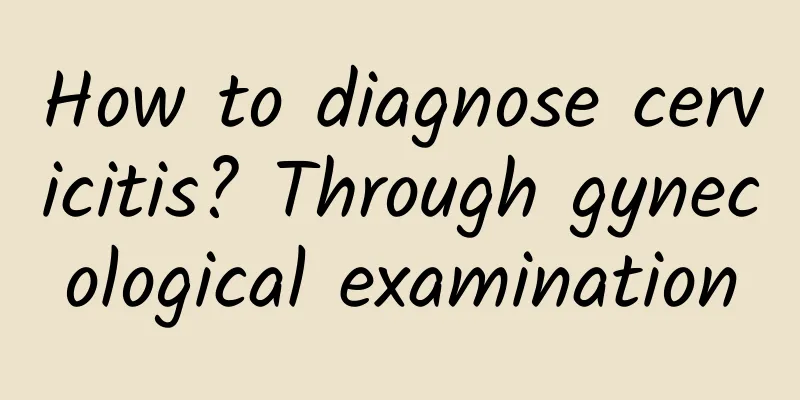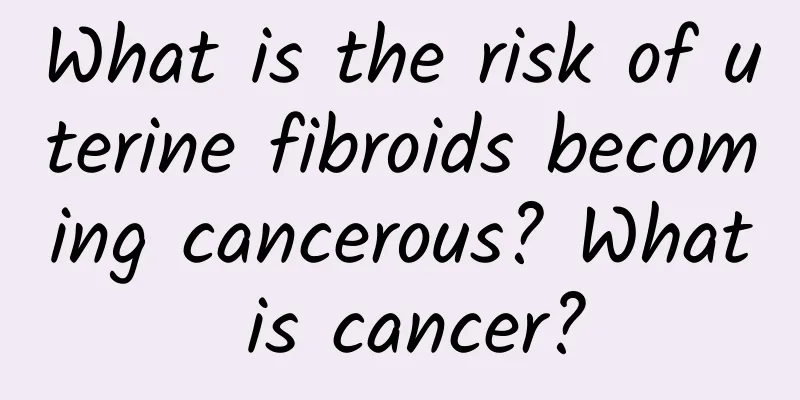How to cure congenital cervical erosion? 3 treatment methods for congenital cervical erosion

|
Congenital cervical erosion is a problem that many of us are ashamed of. There are many reasons for this problem. Congenital cervical erosion makes many of our female friends dare not face their disease. Our female friends are very concerned about the topic of cervix. This problem seriously affects the quality of our sex life. So how can we better solve this problem? Let us know about the treatment of congenital cervical erosion. Treatment: An appropriate individualized treatment plan is formulated based on comprehensive considerations such as clinical stage, patient age, fertility requirements, general condition, medical technology level, and equipment conditions. A comprehensive treatment plan with surgery and radiotherapy as the main treatment and chemotherapy as the auxiliary treatment is adopted. 1. Surgery Surgery is mainly used for patients with early-stage cervical cancer. Commonly used surgical procedures include: total hysterectomy; subradical hysterectomy and pelvic lymph node dissection; radical hysterectomy and pelvic lymph node dissection; para-aortic lymph node resection or sampling. Young patients with normal ovaries can be retained. For young patients who want to retain fertility, cervical cone resection or radical cervical resection is feasible for particularly early stages. Different surgical procedures are selected according to different stages of the patient. 2. Radiation therapy Applicable to: ① patients in the middle and late stages; ② early patients whose general condition is not suitable for surgery; ③ preoperative radiotherapy for large cervical lesions; ④ auxiliary treatment for high-risk factors found in pathological examination after surgical treatment. 3. Chemotherapy It is mainly used for patients with advanced or recurrent metastasis. In recent years, surgery combined with preoperative neoadjuvant chemotherapy (intravenous or arterial infusion chemotherapy) is also used to shrink tumor lesions and control subclinical metastasis. It is also used for radiosensitization. Commonly used chemotherapy drugs include cisplatin, carboplatin, paclitaxel, bleomycin, ifosfamide, fluorouracil, etc. |
<<: Is chronic cervicitis easy to treat? How should chronic cervicitis be treated?
Recommend
How do uterine fibroids form?
Uterine fibroids are a gynecological disease with...
If you want to stay away from adnexitis, you must learn how to prevent it.
As we all know, adnexitis can seriously disrupt t...
Treatment of wind-cold arthralgia syndrome after abortion
Artificial abortion, also known as induced aborti...
Unhygienic living can lead to pelvic inflammatory disease
We often hear people say that unhygienic living l...
How to treat female vulvar itching
Women cannot ignore the self-care methods for pat...
What are the symptoms before menstruation? What are the drastic changes in your body?
Women are most vulnerable when they have their pe...
What are the causes of cervicitis?
Generally speaking, cervicitis is not very scary....
What is the normal thickness of the endometrium?
What is the normal thickness of the endometrium? ...
How effective is TCM in treating cervical erosion?
Traditional Chinese medicine is also a commonly u...
How to relieve amenorrhea
How to relieve the feeling of amenorrhea? Ways to...
What are the typical symptoms of threatened abortion?
What are the typical symptoms of threatened abort...
What are the symptoms of physiological ovarian cysts?
How big is a physiological ovarian cyst? What are...
How long after abortion can I have sex?
How long after an artificial abortion can you hav...
What should I do about uterine fibroids? What are the dietary treatments for uterine fibroids?
Uterine fibroids are a common uterine disease. Th...
What medicine is good for vaginitis
Vaginitis can generally be treated with drugs suc...









